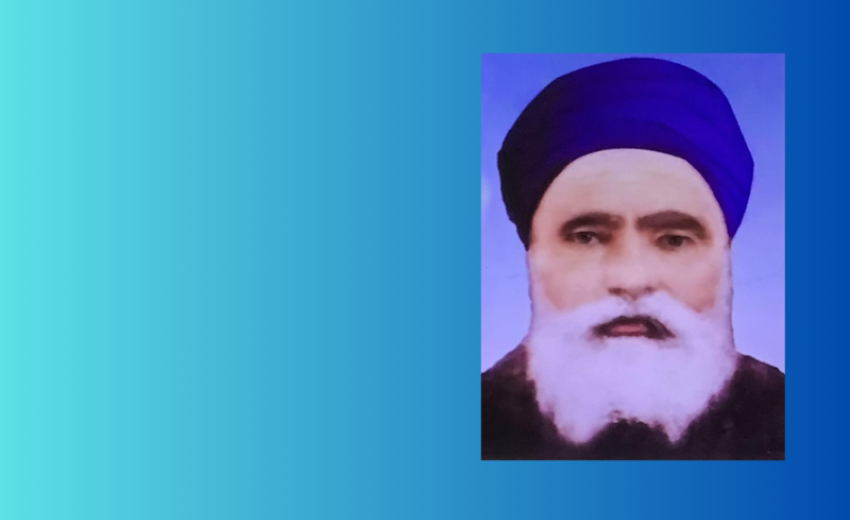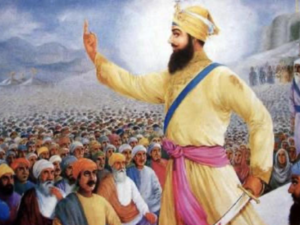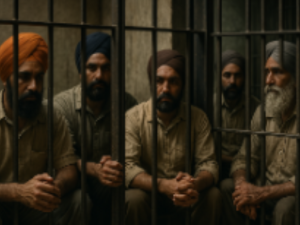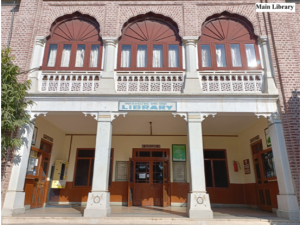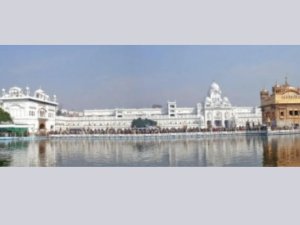The history of Sikhism is replete with shining stars whose selfless service and resilience continue to inspire generations. Among them, Akali Chakar Kaur Singh holds a special place as a savior of humanity during one of the most tumultuous periods in South Asian history—the Partition of 1947. His life was a testament to unwavering faith, compassion, and a commitment to the welfare of the downtrodden. Chakar Kaur Singh’s spiritual and humanitarian legacy is distinct from that of his contemporary, Akali Kaur Singh Nihang, who is celebrated for compiling indices of Sikh scriptures.
Akali Chakar Kaur Singh, originally named Lachman Singh, was born in 1892 in the village of Avera-Chakar, Tehsil Uri, District Muzaffarabad (now in Pakistan-administered Kashmir). His parents, Sardar Suba Singh and Mata Tuls Kaur, raised him in a deeply spiritual environment. In his early years, he studied Urdu and Persian under the guidance of a local Maulvi. At the age of eighteen, he left his village for Amritsar, where he immersed himself in the practice of meditation and the study of Sikh scriptures. Under the guidance of Sant Ratan Singh Ji and other spiritual mentors, he embraced Sikhism formally by receiving Amrit at Sri Akal Takht Sahib and adopted the name “Chakar Kaur Singh.” His devotion to Sikh teachings and his spiritual pursuits laid the foundation for his later life of service. Chakar Kaur Singh spent the formative years of his spiritual journey in Amritsar and later in Banaras, where he studied Sanskrit and other religious texts at the deras of Nirmala saints. He became a wandering preacher, spreading the teachings of Sikhism through katha (narrative exposition), Gurbani recitation, and Amrit Parchar. His tireless efforts brought spiritual solace to many across Punjab and beyond.
During the Partition of Punjab and Kashmir in 1947, many Hindu and Sikh women were left in Pakistan due to tribal attacks. The governments of East and West Punjab established departments to locate missing women, but Indian officials were barred from entering Pakistan-administered Kashmir and adjacent areas, which were declared war zones by Pakistan. In Muzaffarabad, tribal attacks resulted in the martyrdom of numerous Sikh and Hindu families, with many women and children abducted or confined to Amor Camp. Pakistani authorities resisted repatriating these women, often falsely claiming they wished to remain in Pakistan. As a result, many women endured deplorable conditions in the camp for years.
In 1951, Akali Chakar Kaur Singh collaborated with a goodwill mission from Pakistan to evacuate these women. He worked with Pakistani police, locating and rescuing over 1,200 women and children in multiple missions. Among them was Bibi Kulzam Akhtar, daughter of Amor Camp’s commander,Mohammed Saber , exemplifying his universal humanitarian ethos. Akali Ji arranged for her safe return to Pakistan in exchange for the release of Sikh and Hindu women from the camp. Despite bureaucratic challenges, he ensured Kulzam’s transfer, highlighting his commitment to justice and humanitarian efforts. Akali Chakar Kaur Singh played a pivotal role in rescuing and rehabilitating Sikh and Hindu women and children abducted during the communal riots. Hailing from Muzaffarabad, he had intimate knowledge of the region, which made him a vital guide for Indian troops during their operations in Kashmir. Tragically, 111 members of his own family were martyred during tribal attacks on Muzaffarabad. His mother, Tuls Kaur, was burned alive, and countless relatives were either killed or abducted. These personal losses deepened his resolve to serve the victims of Partition. Despite immense challenges, he collaborated with both Indian and Pakistani authorities to locate and repatriate abducted women and children. Akali Chakar Kaur Singh’s contributions extended beyond the immediate post-Partition years. His writings, including a pamphlet on the martyrs of Muzaffarabad and a travel diary preserved in Khalsa College Amritsar documenting his rescue missions, provide valuable historical insights. These works reveal the brutal realities of Partition and highlight his relentless efforts to heal the scars of communal violence. While the latter’s scholarly contributions to Sikh literature are widely acknowledged, Chakar Kaur Singh’s less-publicized work in refugee rehabilitation underscores his quiet, yet profound impact on society.
On November 21, 1954, while reciting katha at Sri Guru Singh Sabha in Jammu, Chakar Kaur Singh fell ill. The next day, he passed away peacefully, leaving behind a legacy of service and sacrifice. His death was deeply mourned, with the city observing a strike in his honor. Akali Chakar Kaur Singh was a beacon of hope during a period of immense despair. His spiritual depth, combined with his humanitarian efforts, underscores the Sikh principle of sarbat da bhala (welfare of all). While his life remains relatively obscure compared to more prominent figures, his contributions to society and his unwavering faith make him a hero worthy of remembrance and emulation.
